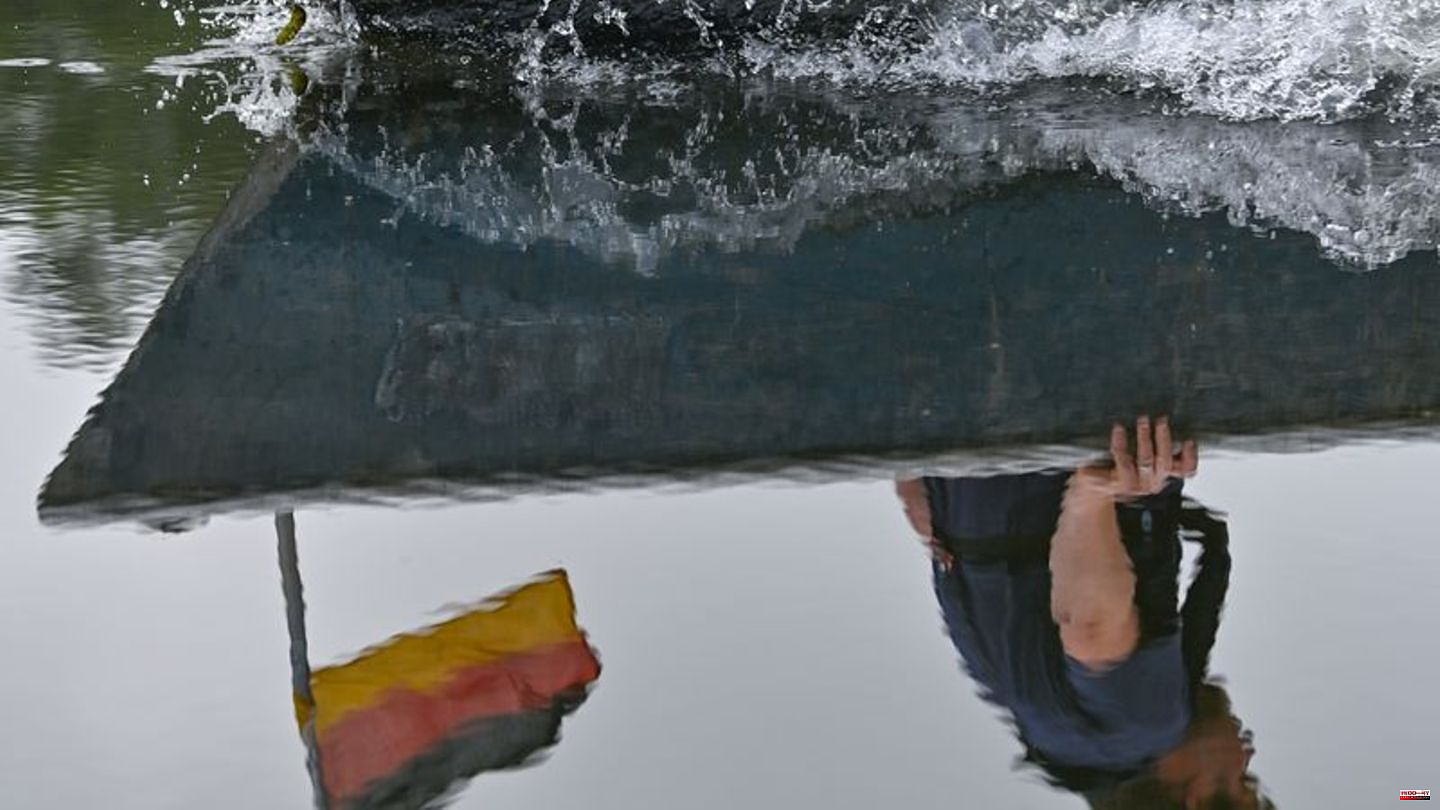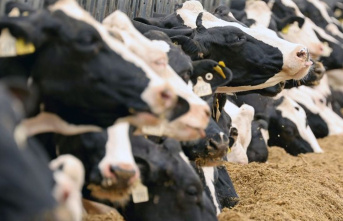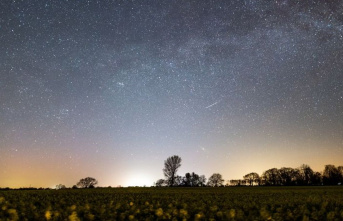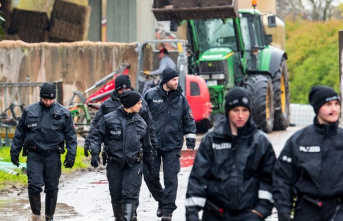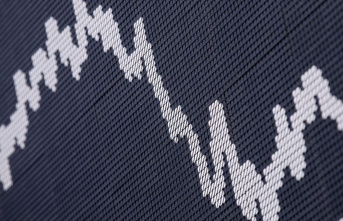The Leibniz Institute for Freshwater Ecology and Inland Fisheries (IGB) has gained further insights in its search for the cause of the great fish kill in the Oder. According to the scientists, the spread of a massive algal bloom in the river was already evident in early August near Wroclaw (Poland). This was shown by evaluations of satellite data.
During a visit to a community on the Oder, Green Party politician Annalena Baerbock emphasized the joint responsibility of Germany and Poland for the river. Meanwhile, news of sampling in the Oder by the Institute for Inland Fisheries in Potsdam-Sacrow gives hope.
The IGB scientists evaluated satellite data which showed that there was a sudden increase in chlorophyll concentrations in the entire course of the river from August 3rd to 4th. These are considered indicators of algal blooms. These values were also increased from July 19th to 20th, as the IGB announced on Thursday. Whether it is the so-called golden alga (Prymnesium parvum), which was detected by the scientists with data after August 6, cannot be said, said the aquatic ecologist at the institute, Christian Wolter, of the German Press Agency. "The satellite images do not differentiate between species. It could also have been other algae. You would need water samples from the area in question to be able to prove that."
Where does the salt used come from?
The experts at the Leibniz Institute for Freshwater Ecology and Inland Fisheries see clear signs that a toxic alga is to blame for the massive fish deaths. Researcher Tobias Goldhammer said that the strong growth of the algae, which actually thrives in brackish water, is due to salt being introduced into the river. Where the salt comes from is still unclear. According to the scientists, other factors also played a role, including low water and increased water temperature. The institute had detected the poison in the water of the Oder.
According to the researchers, it is not yet possible to conclusively assess whether the algal blooms in July and August are directly related. What is clearly recognizable, however, is the very rapid spread of the bloom that followed and which from August 10th covered almost the entire Oder.
19 healthy fish species detected
In the meantime, 19 healthy fish species have been detected in samples in a section of the Oder in Brieskow-Finkenheerd near Frankfurt (Oder). This was reported by the scientist at the Institute for Inland Fisheries in Potsdam-Sacrow (IfB), Daniel Hühn. The more than 1,800 fish caught included everything from juvenile fish to perennial fish. The institute in Potsdam conducts research, among other things, on fish ecology in inland waters.
However, the random sample only gives you a fraction of the fish that are actually in the Oder, the scientist explained.
Baerbock visits the Oder region
During a visit to the Oder region, Green Party politician Annalena Baerbock called for joint responsibility on both sides of the river. In the community of Reitwein, the foreign minister got an idea of the current situation in her function as a Brandenburg member of the Bundestag. "The water knows no borders, and the consequences affect us all. That's why it's crucial for me personally that we, in Germany and in Poland, discuss the Oder together - not without or even against each other," said Baerbock. The cooperation with Poland affects all questions: the clarification of the fish kill, but also questions of further use and the development of the Oder. "We need to talk to each other more, not less."
According to the Brandenburg Environment Ministry, the exact cause of the fish kill has not yet been finally clarified. The final report by a German-Polish group of experts on the causes should be available by the end of September.
Even if there is still a lack of clarity about the cause of the environmental catastrophe, the consequences will be visible for a long time, says Baerbock. "We will have to rethink how we manage our rivers." This is not just a German question, but a European one, said the member of the Bundestag, who is also Federal Foreign Minister. In times of severe drought and low water levels, stress can be reduced by discharging sewage, for example, so that rivers do not overturn like the Oder. People should ensure that rivers are in good ecological condition.

